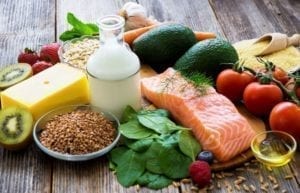Substance use disorder (SUD) wreaks emotional and physical damage, and in treatment, you can learn to balance your diet and reverse the effects of continuous substance abuse.
How Does Your Diet Affect Depression?
Dr. Monique Tello writes in the Harvard Health Blog, “…there is overwhelming evidence supporting the benefits of a healthy diet and lifestyle for, oh, just about everything: preventing cardiovascular disease, cancer, dementia, and mental health disorders, including depression.” Studies show that maintaining a healthy diet promotes positive mental health, whereas an unbalanced diet comprised of non-nutritious foods is linked to mental health disorders like depression and physical disorders such as obesity.
Serotonin is a neurotransmitter that regulates sleep, mediates mood, and reduces pain, among other functions. Approximately 95% of serotonin production occurs in the gastrointestinal tract; thus, your digestive system does not only process food but regulates your emotional health, as well. Dr. Eva Selhub, a nutritional psychiatrist, notes that the “good” bacteria that inhabit your intestinal biome protect stomach lining, assist nutrient absorption, and open neural pathways from the gut to the brain.
Diets that include whole foods, lean proteins, and complex carbohydrates are good for the body and mind. The “Mediterranean diet” is a balanced diet comprised of monounsaturated fats, as found in olive oil, and unsaturated omega-3 fats, found in fish, as well as fruits, nuts, and fibrous foods. Studies show that populations that follow this dietary pattern are nearly 35% less likely to develop depression than those who uphold a diet containing red meats, fatty foods, simple carbohydrates, and processed products.
Eating lots of fruits and vegetables is an easy way to reinvigorate your digestive system and boost levels of serotonin production. Lean protein like fish, yogurt, and some meats are also positive additions to your diet. Consult a nutritionist to devise a plan that fits your lifestyle.
Foods to Buy:
- Fresh produce like fruits, vegetables, and leafy greens
- Fresh fish
- Seeds and nuts
- Yogurt and lean protein
Foods to Avoid:
- Red meat
- Fatty foods, especially those with added flour or sugar
- Processed foods
Eating a healthy, balanced diet can benefit your recovery, as well as provide you with benefits to your physical and mental health. At Avalon Malibu, our dedicated team of mental health professionals can equip you with the tools to revise your diet, ultimately enabling you to apply these skills to life outside the facility. Our commitment to offering diverse treatment options, such as nutritional assessment, means that each person can enjoy a unique rehabilitation experience tailored to their individual needs. If you are interested in a consultation, call us today at (844) 857-5992.











